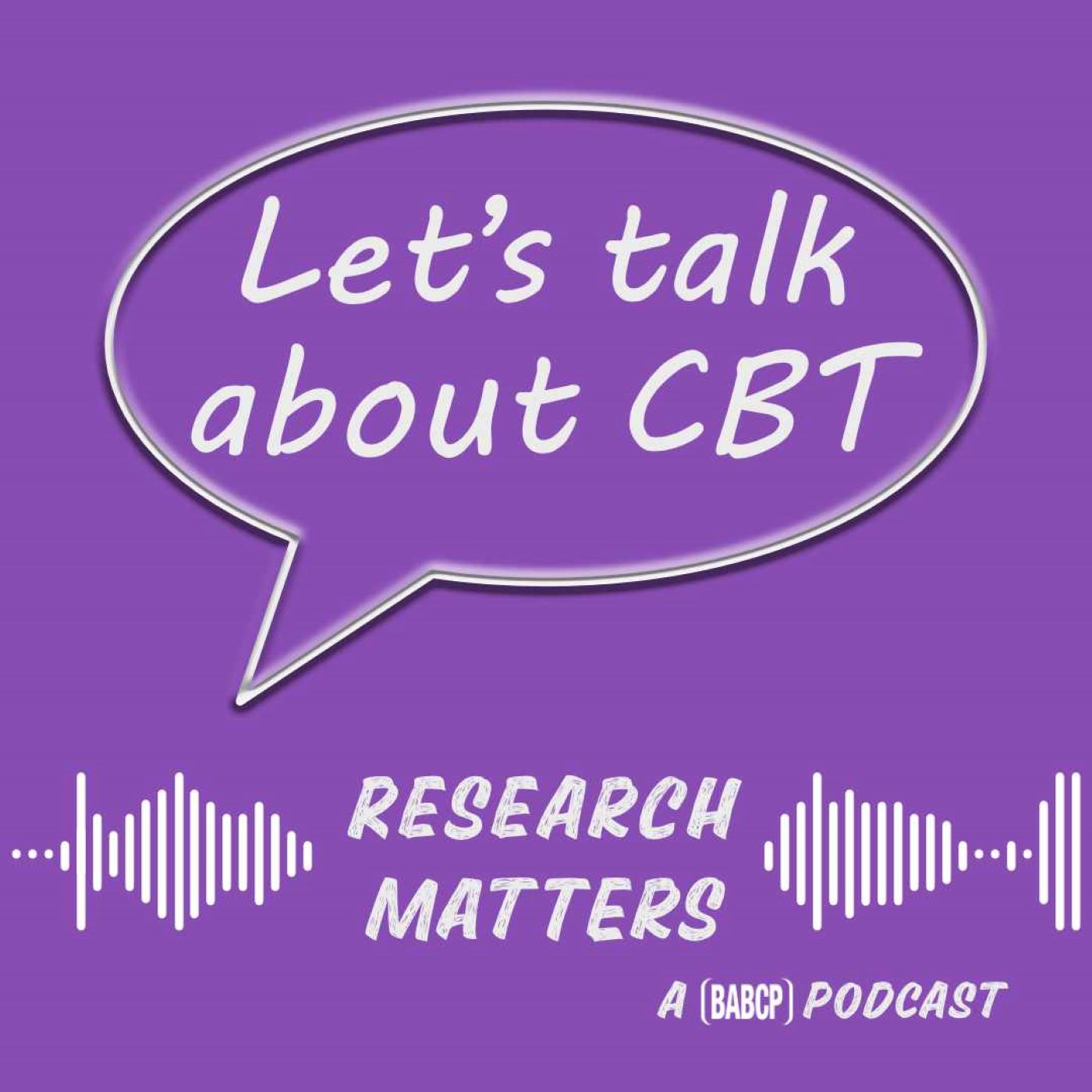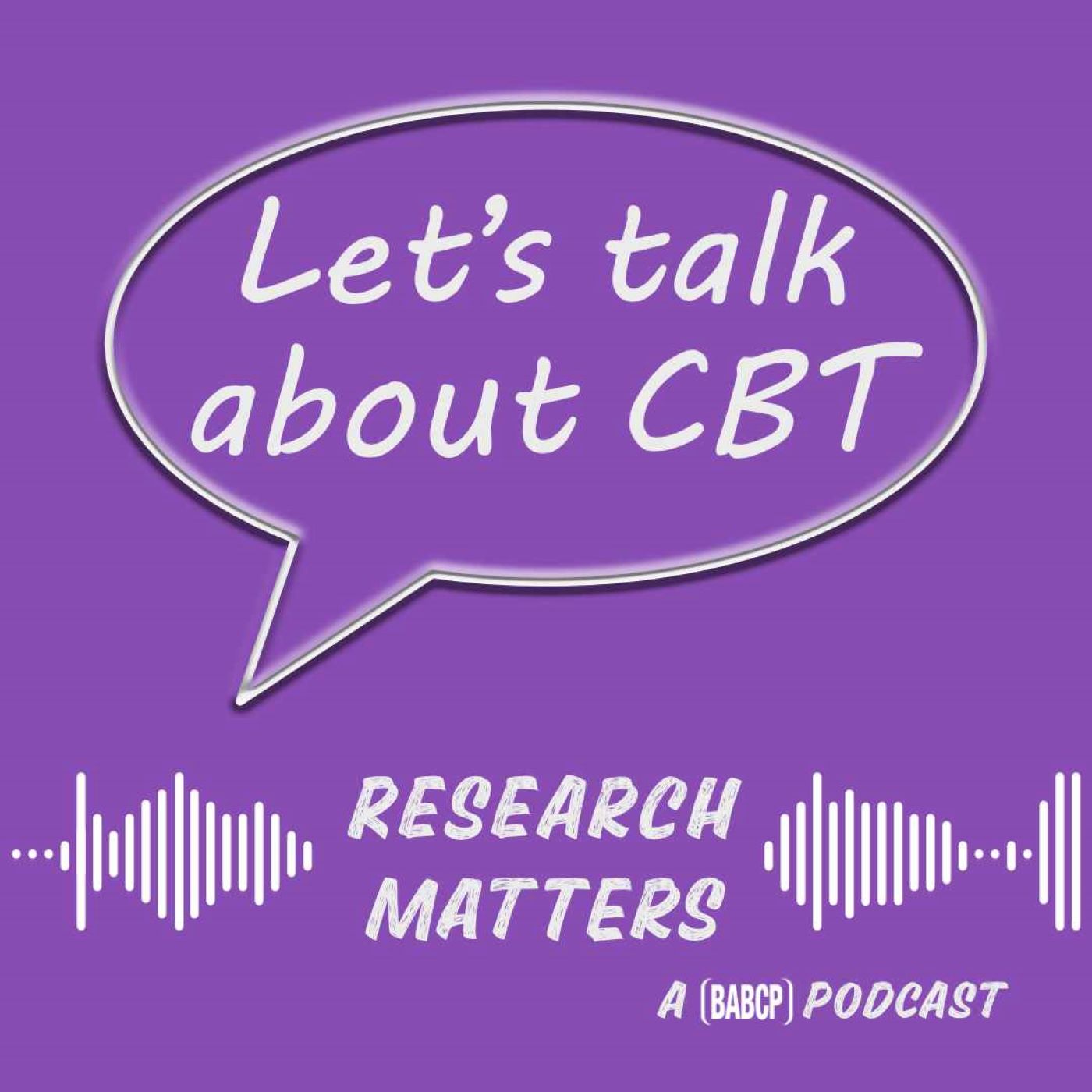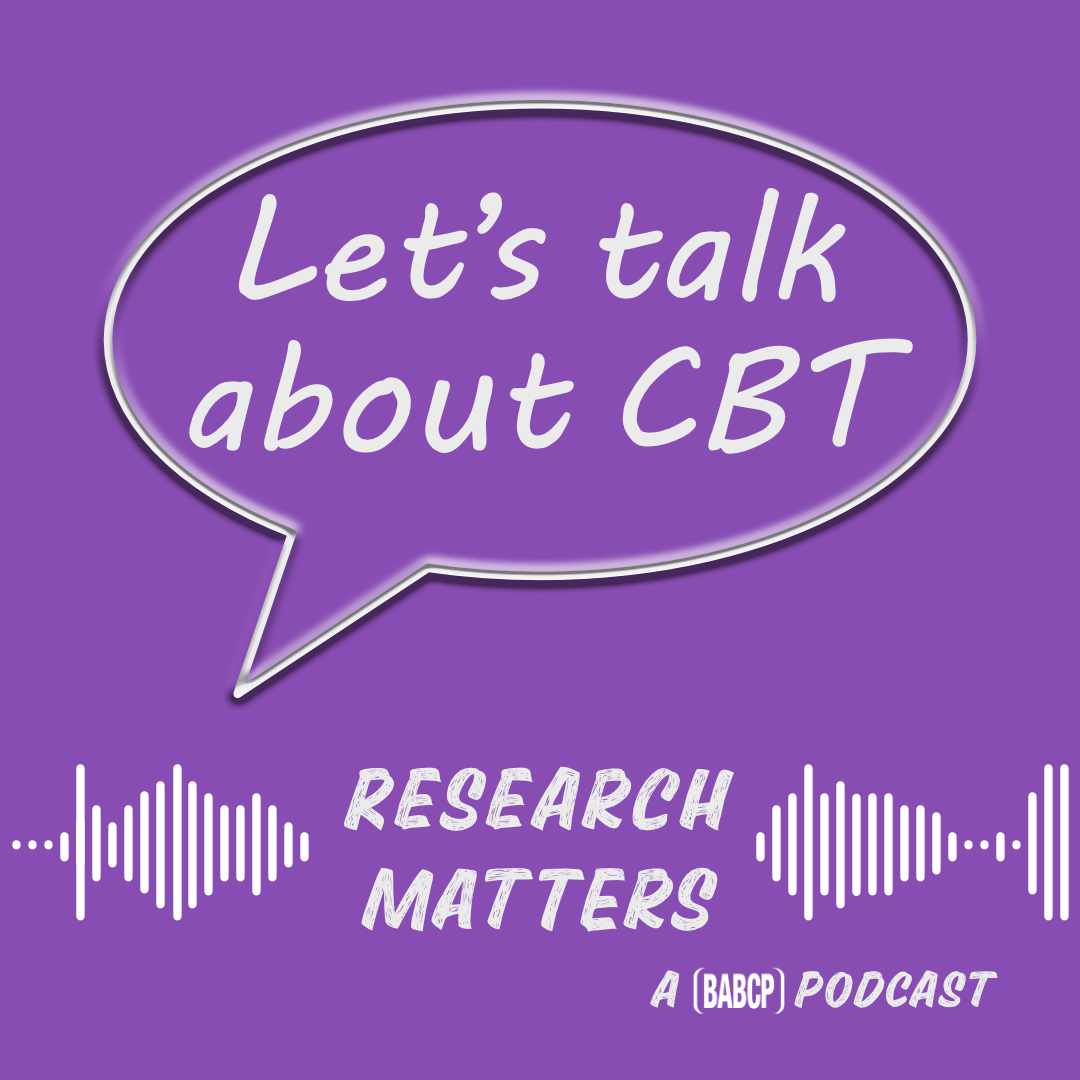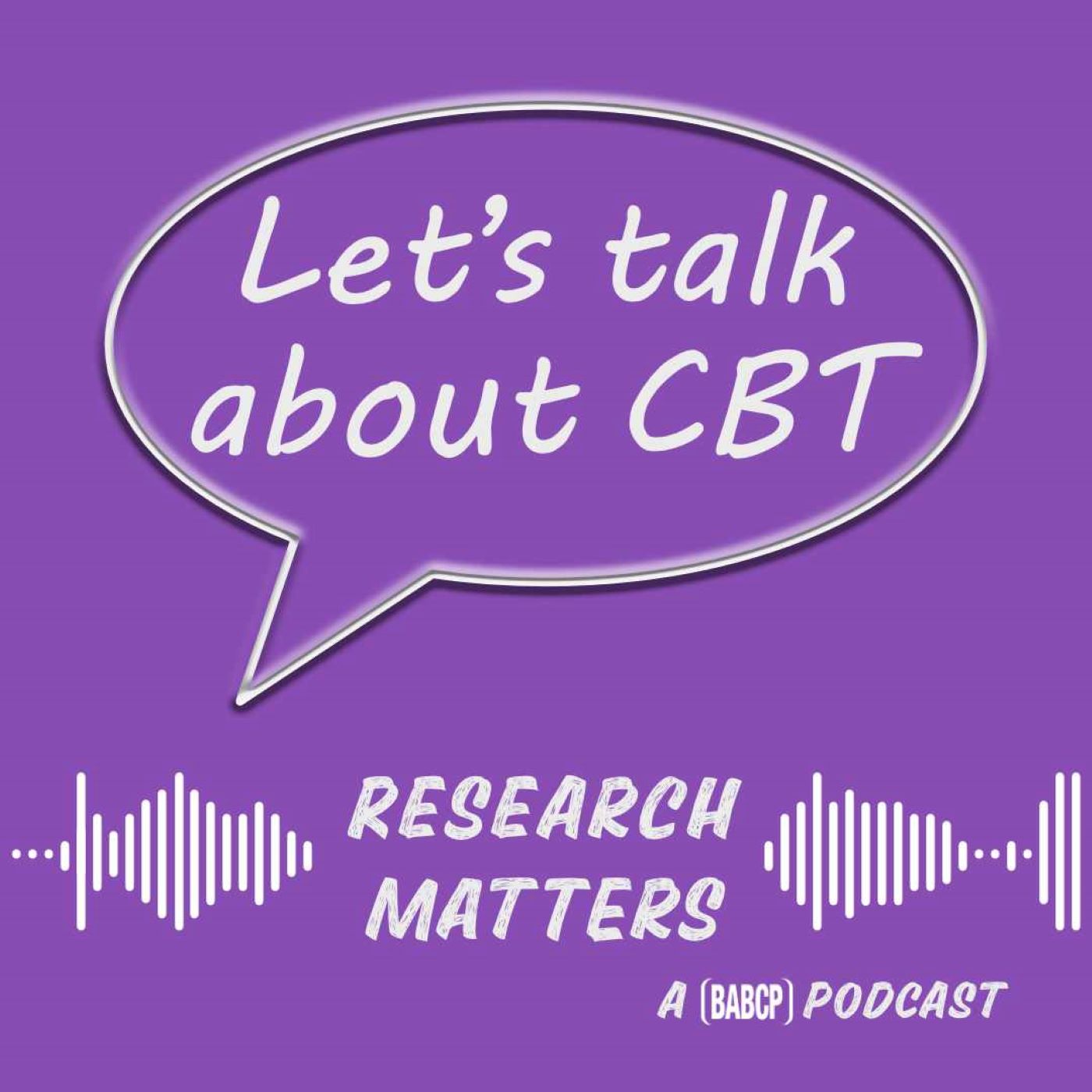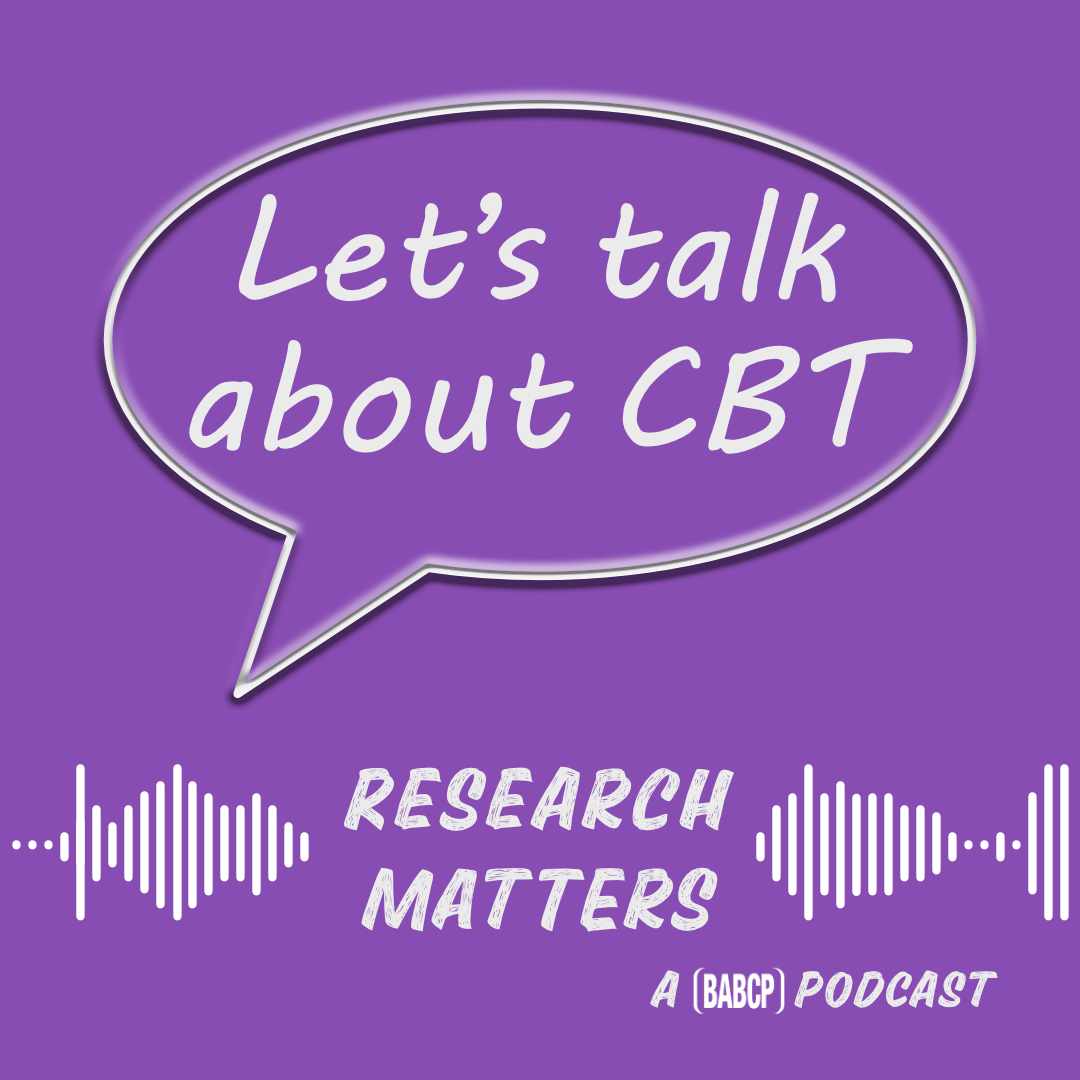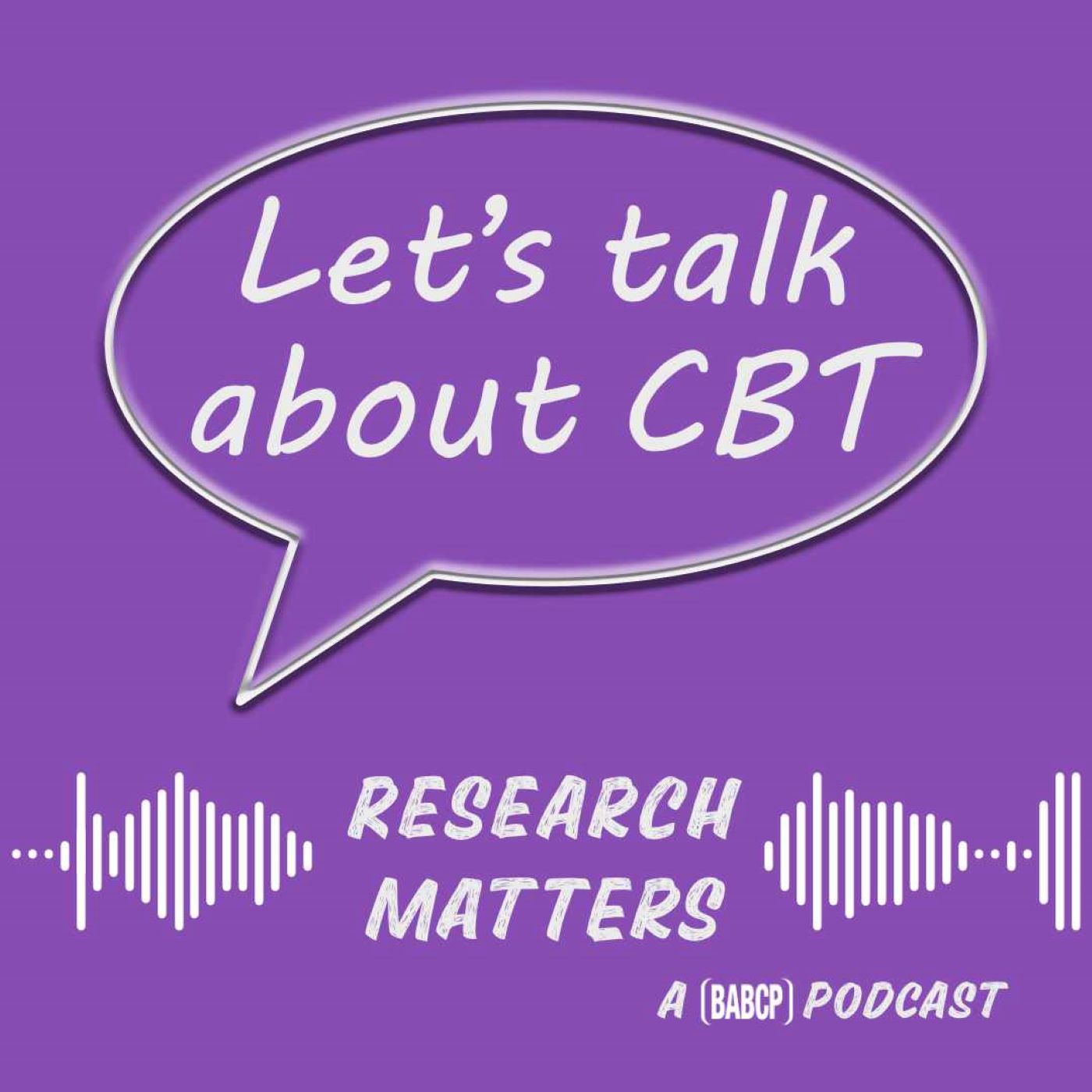Integrating religious beliefs and practices in CT-PTSD with Katherine Wakelin
Description
In this episode of Let's Talk about CBT- Research Matters, Steph speaks with clinical psychologist Katherine Wakelin about her recently published clinical guidance paper, Cognitive therapy for moral injury in post-traumatic stress disorder: integrating religious beliefs and practices, in The Cognitive Behaviour Therapist.
Together, they explore how therapists can compassionately and effectively incorporate clients' religious beliefs into cognitive therapy when working with moral injury. Katherine shares the motivation behind writing this paper, guidance on involving spiritual leaders in treatment, and practical tips for therapists who may feel apprehensive about discussing religion in therapy.
Read the full paper here
Explore more from the Cognitive Behaviour Therapist
Find our sister podcasts and all our other episodes in our podcast hub here:
Have feedback? Email us at podcasts@babcp.com
Follow us on Instagram & Bluesky: @BABCPpodcasts
If you found this episode helpful, please rate, review and subscribe so more people can discover these important conversations.
Credits:
Music is Autmn Coffee by Bosnow from Uppbeat
Music from #Uppbeat (free for Creators!): https://uppbeat.io/t/bosnow/autumn-coffee
License code: 3F32NRBYH67P5MIF
Transcript:
Steph: Hello and welcome to Let's Talk about CBT- Research Matters, the podcast that explores some of the latest research published in the BABCP journals with me Steph Curnow. Each episode, I'll be talking to a recently published author about their research, what was the motivation behind it and how they hope it will impact the world of CBT.
In this episode, I am joined by Katherine Wakelin. Katherine is lead author of the paper Cognitive therapy for moral injury in post-traumatic stress disorder: integrating religious beliefs and practices which was published in the cognitive behaviour therapist
Hi, Katherine Welcome to the podcast.
Katherine: Hello. Thank you for having me Steph.
Steph: Thank you for coming. So just before we start, would you please tell the listeners a little bit about yourself and the areas that you work?
Katherine: Sure. My is Katherine, Katherine Wakelin, I'm a clinical psychologist. I did my training at the University of Surrey and since then have always part of training and after training worked in a range of different specialist trauma services, so I guess certainly work in PTSD has been a specialist interest of mine for quite a few years now. I currently work in a community mental health team in Hampshire, and I guess my role within the team is in a specialist trauma place there as well. And by the time this airs I'll also be working at the University of Southampton as part of their doctorate programme as well. So that's a bit of my background and yeah what I'm currently doing.
Steph: Great. And congratulations on your new role then. That's exciting. So I probably collared you about this paper this time last year, maybe we were at the conference, because it was in progress. And I really wanted to chat to you about it, because I thought it was a really interesting paper. And I was like, if it gets published, do you want to come on the pod? You very, very kindly agreed. So often on the podcast, we often talk to people about research papers, what they did, why they did it. This is slightly different because this is a clinical guidance paper where you're giving actually practical guidance for CBT therapists on how to work with this client group. So was there any particular motivation behind writing this paper, how did this come about?
Katherine: Definitely. Well, I guess it probably brewed over a few years. I think the first case I worked with, which was a PTSD case using cognitive therapy for PTSD, where moral injury was a big component in it, was when I was working at the Traumatic Stress Service in South West London with my colleague Sharif, who co-authored the paper with me. And I guess that certainly was a really exciting piece of clinical work where I drew, with lot of Sharif's encouragement and support, but drew on the client's religious beliefs that were largely underpinning and driving the moral injury that initially we'd overlooked that aspect. And then I guess as time has gone on, worked with similar cases across different religions and different religious backgrounds, but really clearly seeing this theme, particularly when working with moral injury, actually the real value if religion is a key part of somebody's identity, then the real relevance to their PTSD and their distress and that ongoing maintenance, unless that's considered. So that's something that over time kept coming up and with Sharif's encouragement, he'd been saying all along, we should publish a paper on this. And I was like, yeah, yeah, sure. But then I guess when, over time when that kept coming up, we thought, okay, this is an idea actually that I think is a key part of the missing puzzle that perhaps didn't seem to be written about or widely talked about within the PTSD world or CBT world either.
Steph: So I'm sure that many people will be familiar with the term moral injury, but just in case for anyone who isn't, would you mind just saying a little bit about what we mean by moral injury and how this might present when working with clients with PTSD?
Katherine: Definitely. So I guess the paper or the definition our paper drew on throughout was Litz's definition of moral injury, which is sort of the leading in the field generally and how it's defined is the profound psychological distress that arises from very extreme events which violate somebody's very deeply held morals. This could involve somebody maybe perpetrating acts or failing to prevent acts or even bearing witness to acts that really violate their own moral code. So that could be for example somebody, it's really common in the veterans I've worked with, perhaps who've been part of events whether it be civilians are injured or killed or unintended consequences of actions, accidental car crashes or accidents where others are hurt or harmed or even where you've been a bystander of events and you've been unable to intervene and you've watched something very horrific play out. Or I guess even being subjugated to other people maybe betraying you or treating you in ways that severely violate your own moral code. So I guess that's the definition that's talked about in the paper, consistently refers to you throughout. But certainly Hannah Murray, has written a very fantastic paper on moral injury in cognitive therapy PTSD so I would certainly read that and our paper definitely leans on that a lot as a foundation and introduction to work in moral injury which was I think Hannah's paper was one of the first I think really clearly and explicitly laid out conditions of how you might be able to routinely be working with this for PTSD and then I guess mine and Sharif's paper expand on that and think particularly in the realm of working with clients with religious beliefs and that's a part of the identity. And actually the paper highlights the intro but Litz's actually original definition of moral injury, I guess defines it as profound as a whole list but profound psychological, biological but also like spiritual distress is named in that which I think the clues in the name, isn't it? If we're not considering someone's spiritual religious beliefs as part of working with this deeply, deeply held distress that is very relevant to somebody's moral code, then we're missing an obvious piece of the puzzle.
Steph: So in the paper, you offer several practical ways of incorporating religious beliefs into therapy in the context of moral injury. Would you be able to just talk through a few of those?
Katherine: Yeah, definitely. I guess the paper tries to of walk readers through how they might consider religion at various different aspects of somebody's treatment. In the beginning, certainly holding that in mind when you're formulating distress with clients. And I guess the formulation is always a work in progress. So certainly I've been, I've certainly missed that to start off with somebody in our initial formulation. And as our work's progressed actually we've come back to formulation, added that in actually that perhaps maybe a fear of a higher order judgment or condemnation based on acts they've perpetrated perhaps is actually really fuelling that current threat in their PTSD that might have been missing initially. And I guess it's been really I guess some of the guidance by Griffiths talks about listening out for the sacred but I gu


